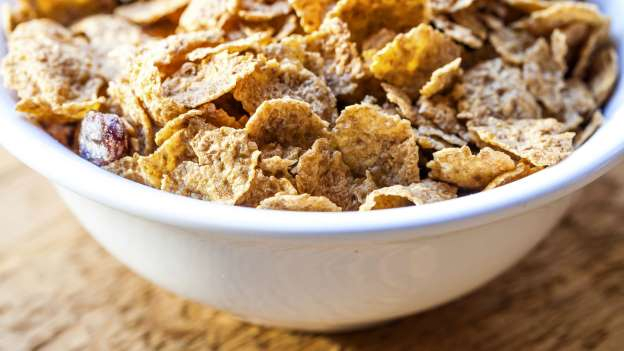Health experts have long touted the benefits and nutrition of almond milk, but recent news releases have revealed that some commercial almond milk is just a fake. Instead of keeping to the natural ingredients of almond milk that make it so healthful, some commercial manufacturers have been adding filler ingredients that actually cause numerous health problems.
Worst of all, most customers still think they are making a healthy decision when purchasing commercial almond milk, when in reality they may be doing themselves more harm than good.
Manufacturers have been adding a chemical known as Carrageenan to almond milk as a thickening agent. This ingredient produces a creamier beverage with a texture that is closer to regular dairy milk. However, the amount of filler added has left less than 2% of almonds in the finished commercial almond milk product. Most of the liquid being consumed is water and Carrageenan, which is bad news for several reasons.
Carrageenan shows up in many foods and hygiene products such as cottage cheese, ice cream, toothpaste, cosmetics, and pharmaceuticals. The chemical also appears in air deodorizers and pesticides, calling into question its safety for consumption.
While it is FDA-approved, Carrageenan is well known as a laxative and can also cause gastrointestinal problems, including ulcers and even cancer. All of this adds up to a chemical that should not be consumed in large quantities on a daily basis.
However, Carrageenan can be found as a key ingredient in most commercial almond milks, including major brands like Silk and Blue Diamond. Companies have decided to use the chemical because it is a cheaper thickening agent than the simple alternative: almonds.
 Some brands have recently announced that they will stop including Carrageenan in their almond milk products, but unfortunately, others have not responded in this way. The full article from NaturalNews.com has more information on which brands will be changing their almond milk recipes in the future.
While nutritionists recommend almond milk as an excellent source of protein and vitamins, to dieters and those who are lactose-intolerant, it may not be as safe an alternative as previously thought. The chemical additives are void of nutrients and in many cases can do more harm than good.
Some brands have recently announced that they will stop including Carrageenan in their almond milk products, but unfortunately, others have not responded in this way. The full article from NaturalNews.com has more information on which brands will be changing their almond milk recipes in the future.
While nutritionists recommend almond milk as an excellent source of protein and vitamins, to dieters and those who are lactose-intolerant, it may not be as safe an alternative as previously thought. The chemical additives are void of nutrients and in many cases can do more harm than good.
 Some brands have recently announced that they will stop including Carrageenan in their almond milk products, but unfortunately, others have not responded in this way. The full article from NaturalNews.com has more information on which brands will be changing their almond milk recipes in the future.
While nutritionists recommend almond milk as an excellent source of protein and vitamins, to dieters and those who are lactose-intolerant, it may not be as safe an alternative as previously thought. The chemical additives are void of nutrients and in many cases can do more harm than good.
Some brands have recently announced that they will stop including Carrageenan in their almond milk products, but unfortunately, others have not responded in this way. The full article from NaturalNews.com has more information on which brands will be changing their almond milk recipes in the future.
While nutritionists recommend almond milk as an excellent source of protein and vitamins, to dieters and those who are lactose-intolerant, it may not be as safe an alternative as previously thought. The chemical additives are void of nutrients and in many cases can do more harm than good.


